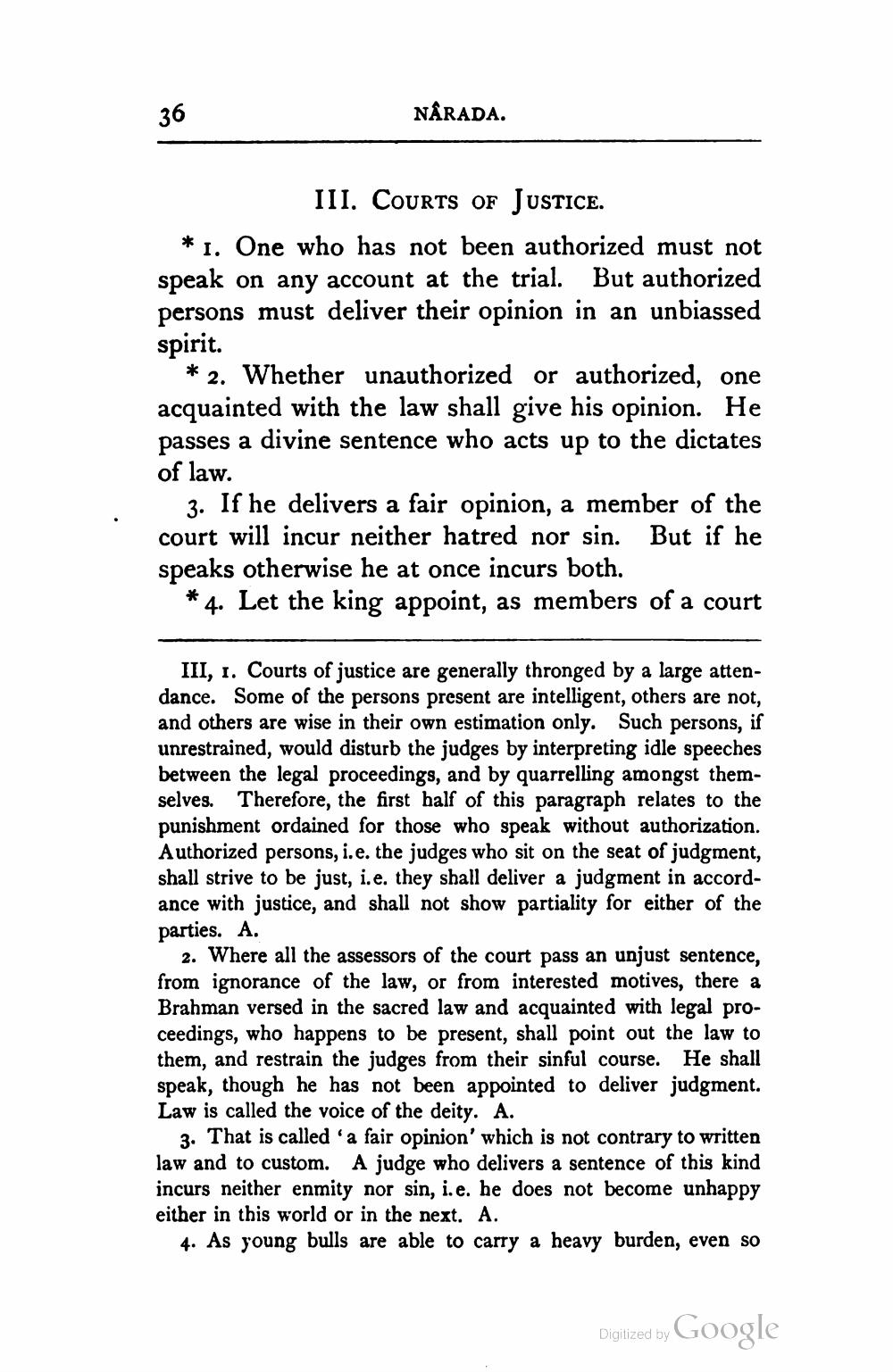________________
36
NÅRADA.
III. Courts OF JUSTICE. *1. One who has not been authorized must not speak on any account at the trial. But authorized persons must deliver their opinion in an unbiassed spirit.
* 2. Whether unauthorized or authorized, one acquainted with the law shall give his opinion. He passes a divine sentence who acts up to the dictates of law.
3. If he delivers a fair opinion, a member of the court will incur neither hatred nor sin. But if he speaks otherwise he at once incurs both.
* 4. Let the king appoint, as members of a court
III, 1. Courts of justice are generally thronged by a large attendance. Some of the persons present are intelligent, others are not, and others are wise in their own estimation only. Such persons, if unrestrained, would disturb the judges by interpreting idle speeches between the legal proceedings, and by quarrelling amongst themselves. Therefore, the first half of this paragraph relates to the punishment ordained for those who speak without authorization. Authorized persons, i.e. the judges who sit on the seat of judgment, shall strive to be just, i.e. they shall deliver a judgment in accordance with justice, and shall not show partiality for either of the parties. A.
2. Where all the assessors of the court pass an unjust sentence, from ignorance of the law, or from interested motives, there a Brahman versed in the sacred law and acquainted with legal proceedings, who happens to be present, shall point out the law to them, and restrain the judges from their sinful course. He shall speak, though he has not been appointed to deliver judgment. Law is called the voice of the deity. A.
3. That is called 'a fair opinion' which is not contrary to written law and to custom. A judge who delivers a sentence of this kind incurs neither enmity nor sin, i.e. he does not become unhappy either in this world or in the next. A.
4. As young bulls are able to carry a heavy burden, even so
Digitized by Google




